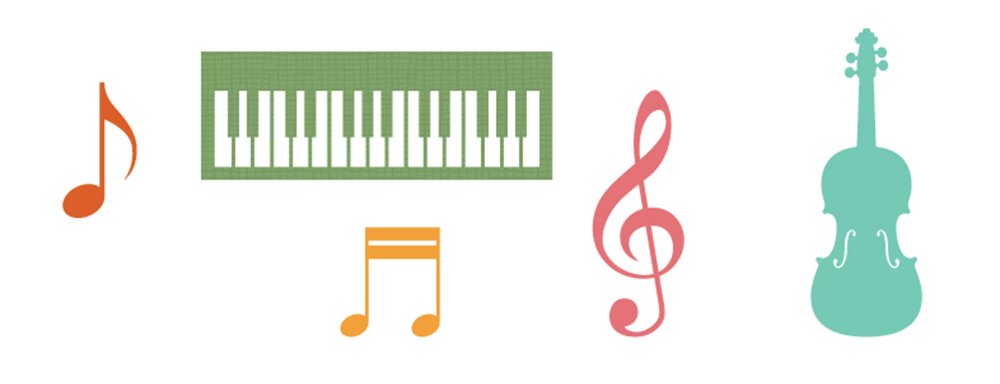
As we approach the summer holidays, we want to extend our heartfelt congratulations to all our students for their hard work and dedication throughout the academic year.
Summer is a time for relaxation and rejuvenation, but it's also a golden opportunity to continue honing your violin skills. Here are some tips and encouragement to help you stay on track and make the most of your practice sessions during the break:
- Create a Practice Schedule
Consistency is key to progress. Try to practice at the same time each day to build a routine. Even 30 minutes of focused practice daily can make a significant difference. - Break It Down
Divide your practice time into segments. Spend some time on scales and technical exercises, then move on to repertoire pieces. This approach keeps practice sessions engaging and productive. - Record Yourself
Recording your practice sessions allows you to hear your progress and identify areas for improvement. It's a great way to track your development and set new goals. - Stay Inspired
Listen to performances by renowned violinists, attend local concerts, or join a summer
music camp. Surrounding yourself with music will keep your passion alive. - Stay Connected
Feel free to reach out to your teachers if you have questions or need guidance. We're
here to support you every step of the way.
We believe that with continued effort and dedication, you can achieve great things. Enjoy your summer break, but remember that your violin journey doesn't take a holiday. Keep practicing!
Wishing you all a wonderful and productive summer!
Warm regards,
Takako Nishizaki Violin Studio
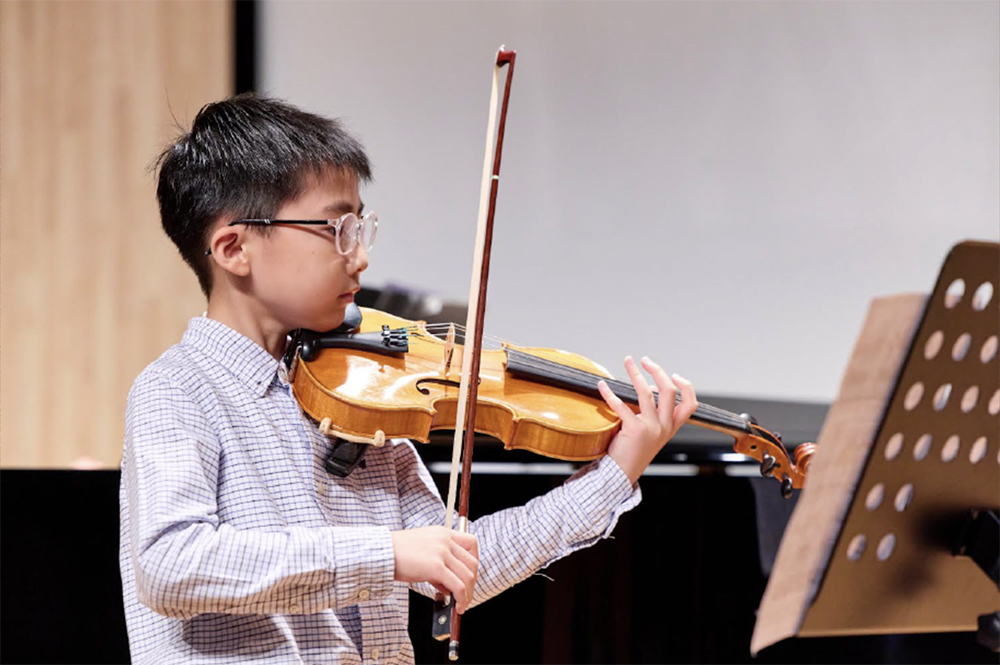
I’m Eugene Bok, one of Miss Cynthia’s student. I’m 9 and I started playing the violin when I was 4. This year I’m going to take ATCL exam in June, and I occasionally have lessons with Mr. Ma, our pianist.
When I practice, I first run through the whole piece and then repeat the parts that where I’m not so good at. I also play in my school’s orchestra, and I have several performances and competitions every school year. I think playing in the orchestra is more fun than playing solo, because you get to know more friends and get to practice with them. You can also learn more instruments names and sound. I think the violin is a big part of my life now.
Eugene Bok
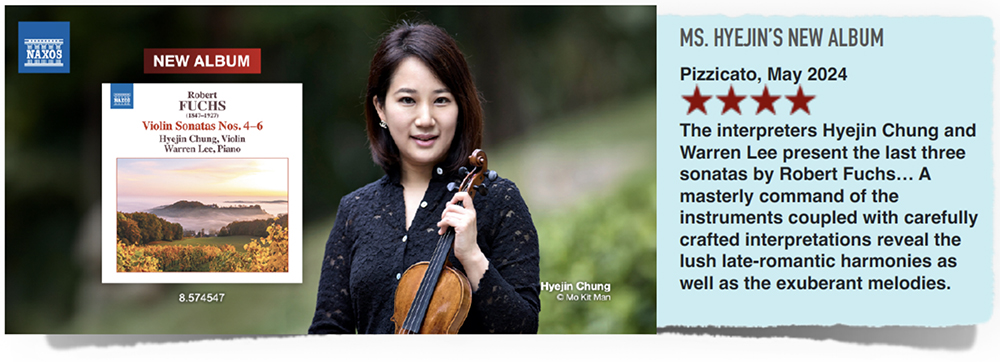
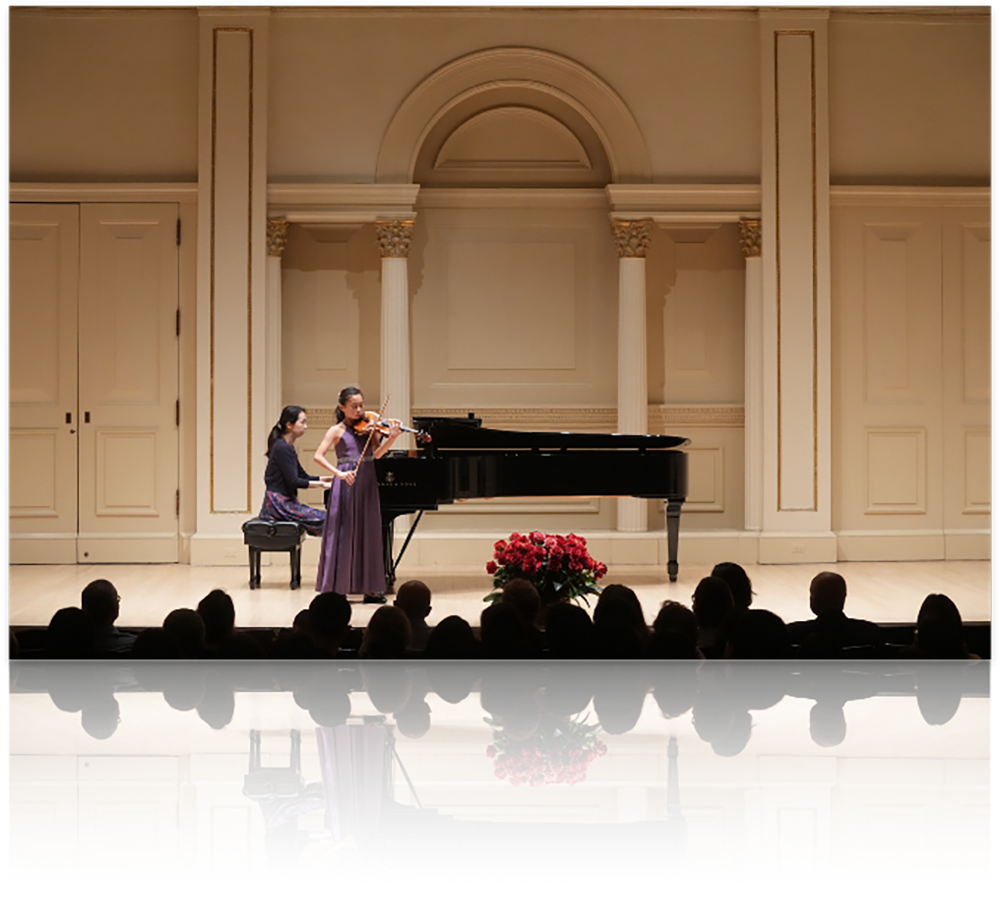
Hi! My name is Halle and I am 14 years old. I started playing the violin when I was two and a half years old. I am really excited to share some tips and tricks on practicing and performing, and I hope that it would benefit and inspire many talented young musicians like me!
Recently, I had to audition for a music conservatory, which needed loads of preparation in order for it to be smooth and successful. I would say that when I have an exam, audition or performance coming up, I would probably practice 2.5 hours or more a day. However, if I am just practicing for leisure, I would probably spend around 1.5 - 2 hours a day. I always start off with practicing some scales and etudes to get my hands and mind warmed up for the upcoming pieces that I need to work on. I learnt that playing the violin is just like doing sport. I do equestrian as my sport, and I would never start jumping fences without thoroughly warming up myself and my horse because that would cause such a huge risk on both of us. After warming up with scales, I would look through my piece(s) and find areas which need tackling and improving. It would usually be about intonation, rhythm or coordination. Breaking the piece in parts to practice definitely benefits my overall performance. After practicing different parts in my piece(s), I would play through the entire piece a few times and if I find myself to be struggling at a certain part, I would go back to that spot and make myself practice that part many times. I understand that practicing one part many times may not be the most interesting thing to do, however, it certainly strengthens the quality of my final performance.
During the night before a performance or a violin exam, I would usually stay in a focused mindset, not letting anything distract me from what I want to achieve. In addition, I would eat a healthy balanced meal and go to bed early so that I have time to wear off my anxiety and get sufficient rest. On the day of the performance, I would wake up a bit early and have a filling breakfast, so I would not be hungry throughout the day. After that, I would have a dress rehearsal at home, before going to the actual venue. While waiting for my performance backstage, I would do some breathing exercises to make sure my mind is in the correct mindset to perform. Also, I would usually have a heat pack on hand or put on a cardigan to make sure my body is kept warm before the performance. I remind myself that once I am on stage, my role is to carry out a brilliant show to the audience. I always have the mindset of trying my best and not thinking about messing up on stage. When I am nervous on stage, I try to remember that I spent many hours on this piece and that I am extremely privileged to be sharing my pride with everyone.
I would like to say a massive thank you to Ms Hyejin. She has not only been my violin teacher for 12 years, but she has been a great part of my life. Ms Hyejin has always been very encouraging towards all my ideas and opinions. Even though sometimes her teaching gets a little bit intense because she really wants me to do well, I understand her frustration and I immediately try to fix the parts she wants me to. Throughout all my years in TN Violin Studio, I have learnt many important lessons not only about the violin but also about life. In particular, I will always remember that even though you may fail in life sometimes, you need to always stay strong and try again. Having difficulties in learning a new technique or a new piece will always happen in my music career, but I learnt that these small challenges are parts of life for me to learn from and to improve. Instead of complaining, I always think of the positive outcome after hard work. I have been part of the TN Violin Studio for 12 years, it is finally time for me to walk out of my comfort zone to face new adventures. I will be attending boarding school in Canada. It is extremely hard for me to say goodbye to all the teachers and fellow students because the studio has essentially become my second family.
I hope that my sharing may inspire you in some way to practice smart. Please understand that when you are faced with challenges, you should always find the positive aspects in it and try your best to overcome them.
Halle Leung
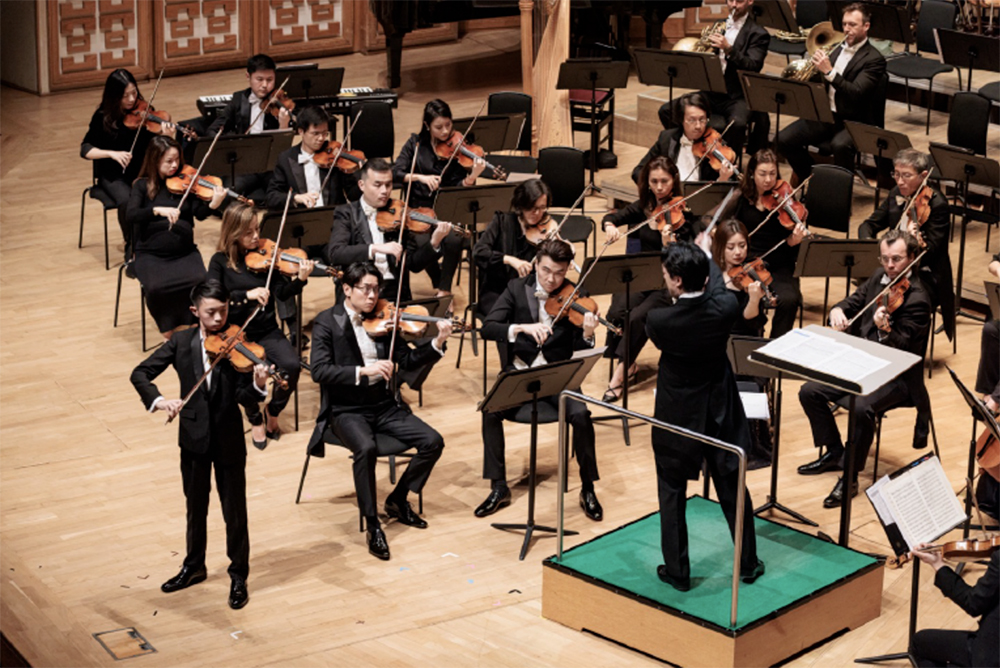
Hi everyone, my name is Alston and I have been learning the violin from Ms Hyejin for about 12 years now. I would like to share some personal challenges and strategies for practices that worked for me.
Throughout all the pieces that I learnt, I think that new techniques are really hard to incorporate into my music and interpretation, especially if it is a new skill, because that takes a lot of practice, and a lot of trial and error. One example of this is left hand pizzicato. I took a long time trying to figure out how to make a relatively nice sound, and I did not want to practice it because it was hard, Therefore, the cycle continued. I never got better until I realised that I needed the proper motivation. Things like quality and mindful practice is not easy, so the proper motivation is needed. When I was in violin camp in the U.S, I met a lot of people who had a lot more experience and skill than me, and I was extremely scared to mess up in the concerts. This gave me motivation to practice, and do well in my classes. When I usually practice at home, I give myself a goal every time I practice, and reward I can work towards. Whether it be a snack or some video games at the end of my practice, I always tell myself, once I can do this consistently, then I know I truly can do it in the future. I know this takes a lot of self-discipline and diligence, but I believe that everyone can do it, and it takes time to figure out one's own strategies that work best.
Some Strategies I like to have for practicing differs between pieces and composers. Right now I am playing gypsy music, and I never really done that before. I am still trying to figure out how to play this kind of music differently compared to other styles that I have played. Some general rules for all music that I've played are like not to play through the whole piece while practicing, but instead focus on small little parts and play it well. For example, even if I spent one hour practicing 3 bars, in the end it sounds really good and fits my interpretation of the music, it would still be better than wasting the hour playing through the music and not really improving. Typically, the day I have my violin lesson, I like to review what comments have been made in the lesson so it is still fresh in my memory, and I can have better quality practice.
To play well on the violin is very difficult, and it takes years to master. I think that the way that I practice is equally important to the way I play the pieces, because practicing well can develop good habits, play better, and help me in the long run. A strategy for practicing I really think is useful for fast pieces especially is to do rhythm, slow, or metronome practice. This can help clear up passages, when the notes aren't clear. For as long as I have been learning the violin, clarity has been a problem for me. Personally, these practices if done daily can really solve most clarity issues.
Perhaps the most important of all, warming up before practicing or performing. This step is crucial to having a good practice or performance. Things like studies,exercises, scales or other easier pieces are all good warm ups, because the whole point of warming up is to get my mind and body ready for practice or performance, so I can achieve my full potential while performing, or mindful practice when I'm practicing. In February, I had one of the biggest concerts I ever performed, and it was with an orchestra too. I was extremely scared to mess up, as I knew a lot of people had put resources into helping me. So I knew I had to warm up, especially when I had cold hands. Doing some last minute changes to my playing is not really a good idea because it can alter what I already had in my muscle memory, so instead I tried to find the best way to present myself on stage, aspects like showmanship and body movement. I know these strategies might not be for everyone, but everyone should try what worked for them before.
In these 12 years of learning the violin, I grew a lot as a person and understood a lot of important things to help me in the future, whether it be in violin or not. In my future endeavours in Canada after I leave, I hope to learn from these challenges. Also thank you so much to Ms. Hyejin for putting in the effort and time to teach me all these years, and teaching so much helpful information in all aspects of playing the violin.
Alston Leung
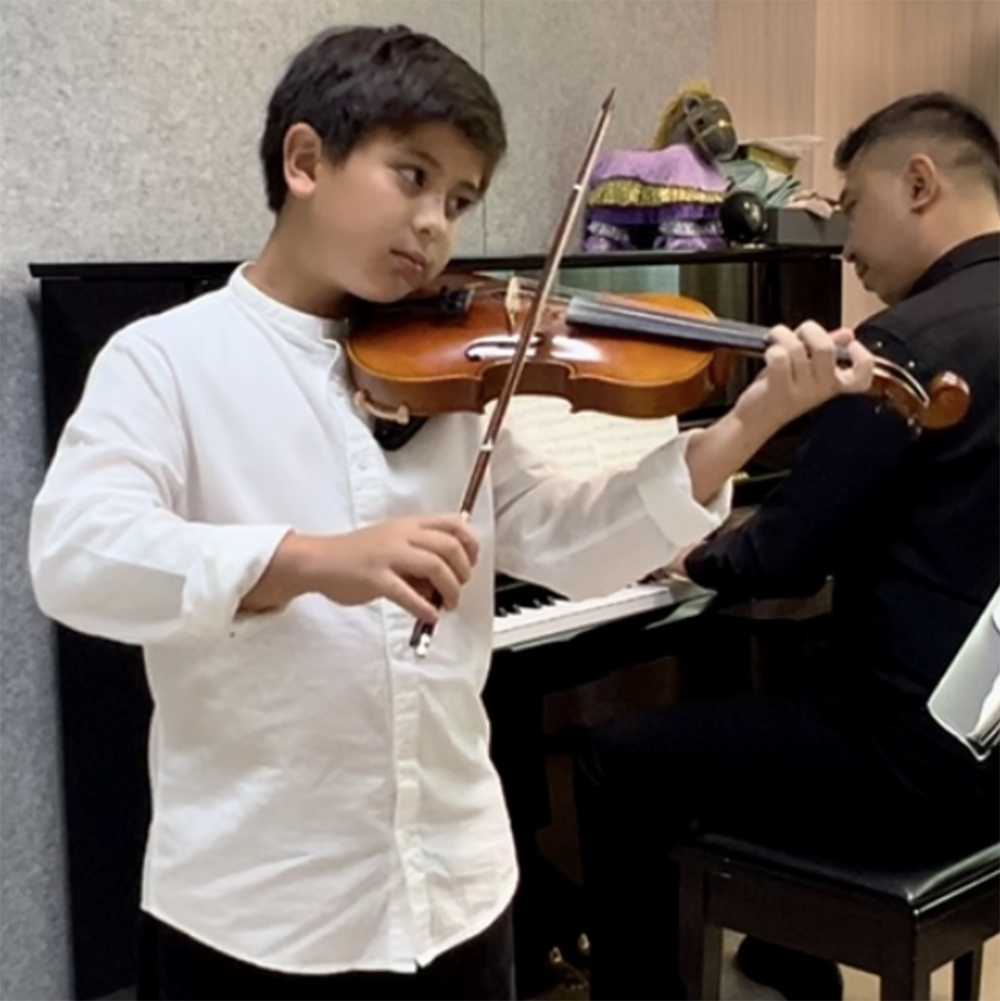
I have been learning violin at TN Studio since I was three years old. This year I practiced hard and got a distinction on my ABRSM grade five violin exam (which followed me getting a distinction on my grade three exam the year before). Now I am starting to work on my grade eight exam pieces! I am very happy learning at this studio. Teacher Victor is a great teacher. He teaches me to play musically with expression, and always encourages me to get better and better. Most importantly, Teacher Victor is funny and finds fun ways to help me remember things.
Marcus Dapiran
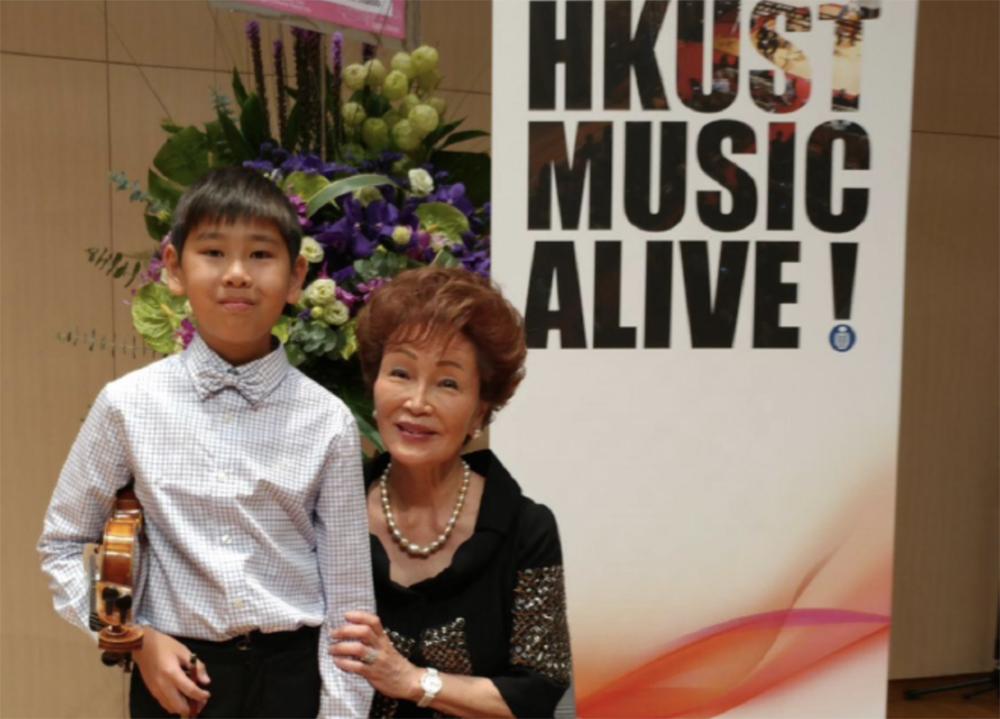
My name is Boris, and I have been playing the violin for over a decade. As I was preparing for my public examination during the past few months, I did not have much time to practice my violin at all, but now I am fully focused and dedicated to picking up where I left off. I usually spend half an hour to an hour practicing passages I am not familiar with, along with warm ups including scales and finger exercises involving both my left and right hand. Prior to performances, I do breathing exercises to calm myself down and make sure I am in a stable mindset; during the performances, I don’t take notice of the audience or anyone for that matter; I am only focused on my playing, intonation, dynamics etc.
To those who are eager to learn violin and are extremely ambitious, my best advice is to stay motivated and dedicated. There will be times where you do not want to practice your scales and that you don’t want to fix your intonation - this will only harm you in the long run. I too experience these feelings from time to time, but I remind myself that I have goals that I want to reach, such as obtaining the ATCl, thus I push through and keep practicing each day.
I want to say a special thank you for TN studio for all the support they have given me over the years. I want to firstly thank Teacher Josh, who has taught me for many years, and his patient and insightful methods of teaching. He opened my eyes to how each piece has its own distinct style which I should accommodate, alongside my own playing style, while teaching me the importance of a good work ethic and dedication. I would also like to thank Teacher Victor, who is currently teaching me. Although our time together has been brief thus far, he has taught me the importance of passion and emotional connection to each piece - that the best performances come from violinists who can resonate the most with each piece, such that I put my heart and soul to each note.
Boris Chan
Upcoming events in 2024
Teacher concert
13 September Friday 7:30PM
Venue: China Congregational Church
Address: 6/F., 119 Leighton Rd, Causeway Bay
Annual Student Concert
Rehearsal 18 October Friday 6:00-10:00PM
Concert 26 October Saturday 10:00AM-2:00PM
Venue: China Congregational Church
Address: 6/F., 119 Leighton Rd, Causeway Bay
